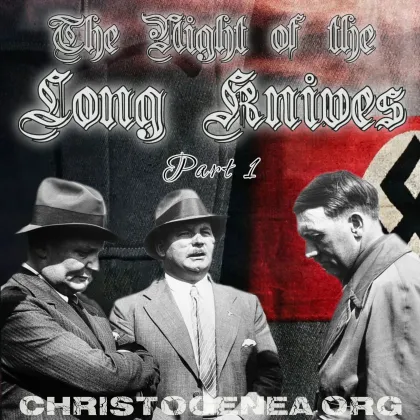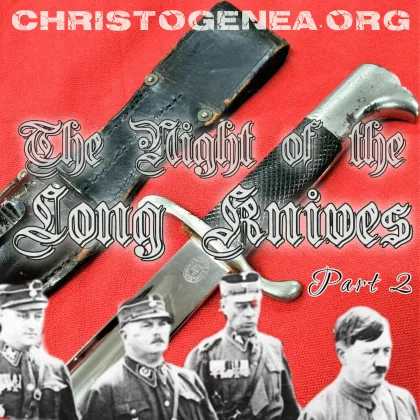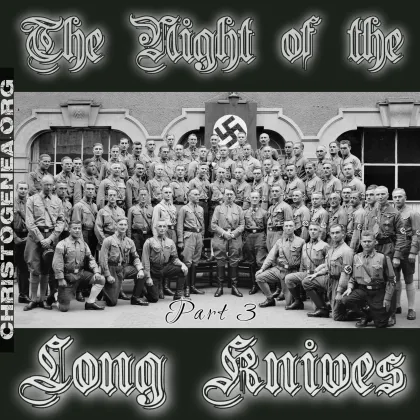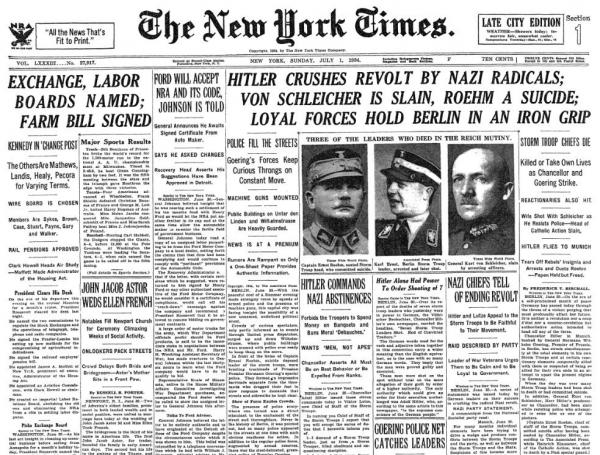The Night of the Long Knives, Part 1

The Night of the Long Knives, Part 1
Here I am going to present a series of articles by General Leon Degrelle which explain the strife within the National Socialist German Workers Party which culminated in the infamous Night of the Long Knives, which was a purge of prominent dissidents and loose cannons within the Party which took place from June 30th to July 2nd, 1934. There is a lot of extant misinformation and propaganda concerning this purge, because there are few take the time to understand what events had led to it, and what events transpired in its aftermath. Only weeks after the purge was completed, Hitler’s leadership of both the Party and of Germany was confirmed in a landslide election victory, on August 19th of 1934.
After the death of Paul von Hindenburg on August 2nd, a referendum was held to merge the offices of Chancellor and President, making Adolf Hitler the undisputed leader of Germany. In order to judge the scope of the victory and the perception of Hitler by the German public at this time, we should take a brief look at the German federal elections which were held just prior to 1934. In 1925, Hindenburg won the office of President with less than 49% of the vote, and in again in 1932 with 53%. That same year, opponent Adolf Hitler received nearly 37% of the vote. Hitler was soon appointed Chancellor, which was the second position in the government, by an aged and ailing von Hindenburg. He had only run for reelection in fear of a National Socialist victory, to keep Hitler out of the office of President.
Once Hitler became Chancellor, he called for new elections which were held in March of 1933, where he had hoped to gain a sound majority. He was again victorious but received only about 44% of the vote, so any legislation he sought would still require the assistance of a coalition of parties in order to succeed. Hitler remained Chancellor and Hindenburg remained as President until his death. Then on August 19th of 1934, barely seven weeks after the purge of several major figures within his own Party, Hitler finally prevailed as the vacant office of President was merged with the office of Chancellor with nearly 89% of the vote. In this election, Hitler had no actual opponent. Either the offices would be merged and Hitler would assume the new office, or the people would reject the merger, and that would have necessitated a new election for President. So while it was not truly a direct election, the people nevertheless gave Adolf Hitler a sound vote of confidence only a short time after the Night of the Long Knives.








 Please click here for our mailing list sign-up page.
Please click here for our mailing list sign-up page.







